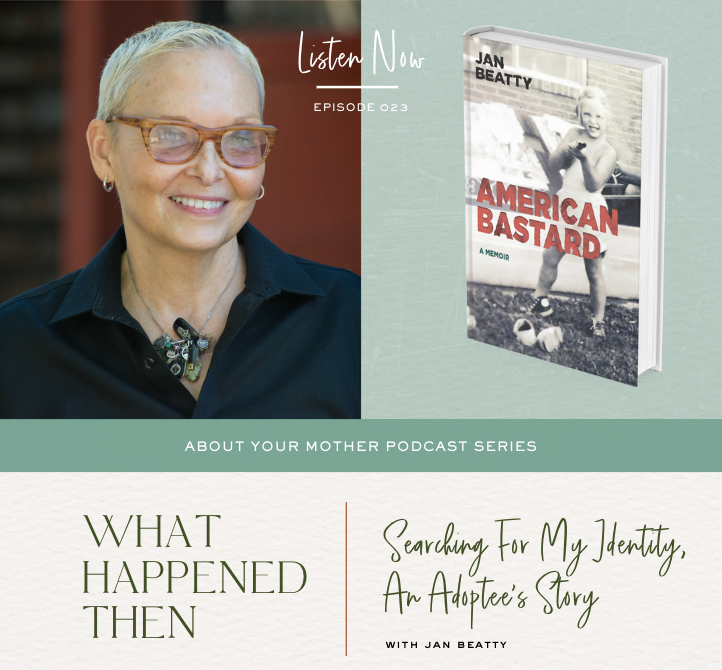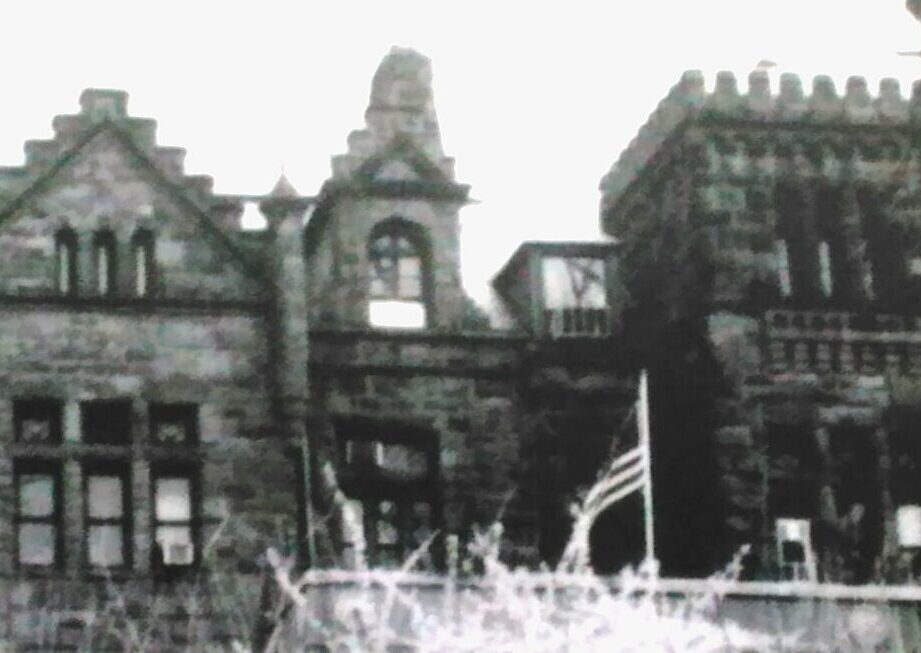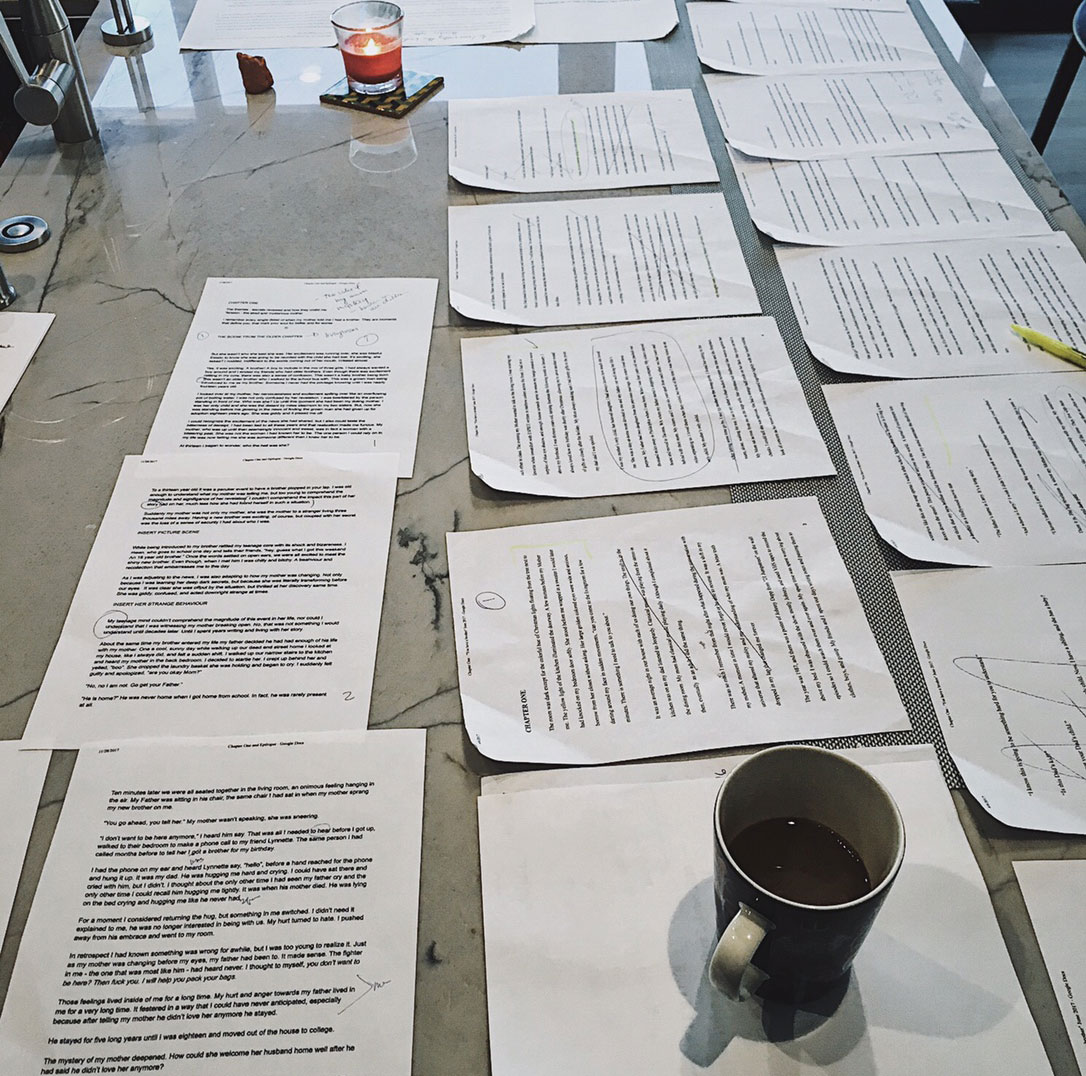When adoptees search for their birth parents, it’s the pursuit of identity. Where do I come from? Who gave birth to me? What is my medical history?
AYM guest, Jan Beatty, wanted to know her name – not the one given by her adoptive parents, but the name on her birth certificate. This quest began a decades-long search. An experience documented in her memoir, American Bastard.
“When I met my birthmother, she was full of shame and was crying. We had very different agendas. She wanted to apologize and know that I had a good life, and I wanted to find out who my father was. It was so hard to get information from her…I’m not upset she gave me away; I was upset she wouldn’t tell me my name.”
– Jan Beatty
Walls of Protection
In the decades before Roe, unwed mothers relinquished their children under secrecy and shame; this pain carried through to the next generation. Jan’s mother was a girl who went away, which meant finding her through the institutions that organized the adoption would be difficult. Locating her mother and father would be a test of perseverance and patience.
“I had assembled huge walls of protection over the years to stay alive. An adoptee needs to have a strategy from a young age, whether conscious or not — a way to manage this hole of abandonment, loss, and grief.”
– Jan Beatty, excerpt from “American Bastard”
Being Saved
Throughout her book and our conversation, Jan addresses the concept of an adopted child being “saved.” This notion paints over the tremendous hurt central to the experience. As she explains, there can be gratitude for being adopted while acknowledging it’s rooted in a broken maternal connection.
“The cost for being adopted is compulsory gratitude. You are supposed to be very, very grateful. And that’s another part of it; there is no room for questioning. There is no room for being unhappy about it. It’s a primary, lifelong trauma that no one puts in those terms, or few people do.”
– Jan Beatty
The Finding
Identity and belonging are such an integral part of our existence. Jan’s revelations surrounding her adoption are essential to understanding the intricacies of emotion for adoptees.
Locating her birth parents allowed Jan to ask questions but does not resolve the pain; that is something an adoptee needs to repair on their own.
“I would suggest they meet with them and see what their child has to say… everybody wants something different. I didn’t want a family, and I didn’t want birthdays and Christmas’; that’s the last thing I wanted. But some people might want that. I would just say to listen and try to be open.”
– Jan Beatty
To hear more from Jan Beatty and her story, download and listen to the episode.
Bio
Jan Beatty’s seventh book, American Bastard, won the Red Hen Nonfiction Award. The University of Pittsburgh Press published the Body Wars in 2020, and a new chapbook, Skydog, was just released by Lefty Blondie Press.
In the New York Times, Naomi Shihab Nye said: Jan Beatty’s new poems in “The Body Wars” shimmer with luminous connection, travel a big life and grand map of encounters. Beatty worked as a waitress, abortion counselor, and in maximum security prisons. For years, she directed Creative Writing, the Madwomen in the Attic workshops, and the MFA program at Carlow University.



